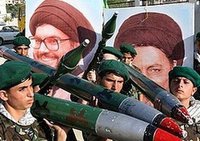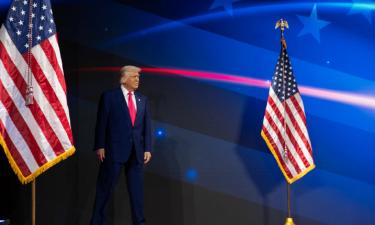Hezbollah slowly climbs to power in Lebanon
 After the end of the Second Lebanon War, Hezbollah, a radical Shiite movement, and several other groups, concentrated their efforts on strengthening their influence inside the country.
After the end of the Second Lebanon War, Hezbollah, a radical Shiite movement, and several other groups, concentrated their efforts on strengthening their influence inside the country.
Retrieving its military potential at the expense of Iran and Syria, the Lebanese resistance takes measures to develop the civil infrastructure, which returns the support of the masses. After the collapse of the national unity government, Hezbollah received considerable advantages owing to the appointment of Najib Mikati, one of the followers of Lebanese resistance, for the position of the prime minister.
The Iranian ruling regime has been supporting the Shiite Hezbollah for many years. The movement was founded in 1982. In 2005, it was blacklisted by the European Parliament as a terrorist organization; all of its bank accounts in Europe were frozen. However, Lebanese resistance continues to strengthen its positions in the Middle East. It is worthy of note that many countries, including Russia and China, do not consider Hezbollah a terrorist organization.
The movement refuses to cease hostilities despite UN's Resolution 1701. The resolution particularly contains a requirement to disarm all armed groups in Lebanon and claims that arms and power In Lebanon should belong to the State of Lebanon only.
Hezbollah is not trying to seize power in Lebanon militarily. The group uses various levels trying to penetrate into all spheres of life in the country. The activities of the movement covers the social and the legal fields. The organization funds the construction of homes, schools and kindergartens. Hassan Nasrallah, the leader of the movement, reportedly spent as much as $2 billion, which he received from Iran, on social activities in Southern Lebanon. Impoverished families began to receive regular financial support. People receive money in envelopes signed by Nasrallah.
In Hezbollah-controlled areas of Southern Lebanon, there was an alternative system of courts established. They are more efficient than official Lebanese courts for all Lebanese citizens, not only for Shiites. Religious dogmas were mitigated: women were allowed not to wear paranjas, the ban on drinking alcohol beverages was lifted. All those measures increased the popularity of Hezbollah.
Some analysts believe that the Party of Allah can have up to 60,000 warriors in case of war with Israel. Over 500 bunkers have been built in the south of Lebanon to complicate Israel's ground operation. Over 45,000 Hezbollah's missiles reportedly target Haifa, Tveria, Tel-Aviv and other large settlements in the north and in the center of Israel.
The government had to acknowledge in 2006 that the small and poorly armed Lebanese army was unable to disarm Hezbollah with the use of force. The Second Lebanon War, triggered by Shiite extremists, claimed over 1,000 lives. The Third Lebanon War may shed a lot more blood.
Hezbollah's rise to power may shatter the fragile balance between various ethnic groups living in Lebanon. In the worst possible scenario, a civil war may start.
The events, which take place in Lebanon today, may change the balance of forces in this small country. The governmental crisis in Lebanon took place in January of 2011. Saad Hariri's pro-Western coalition lost its power because of disagreements about the investigation of Rafik Hariri's murder.
If Hezbollah and its allies come to power in Lebanon, the influence of Iran and Syria will grow in the country. The two countries will be able to provide military support to the new regime legally. However, Lebanon may lose the financial support of the West in this case. The USA and the EU have repeatedly resorted to economic sanctions against political regimes before.
Yuri Sosinsky Semikhat
Pravda.Ru
Subscribe to Pravda.Ru Telegram channel, Facebook, RSS!




